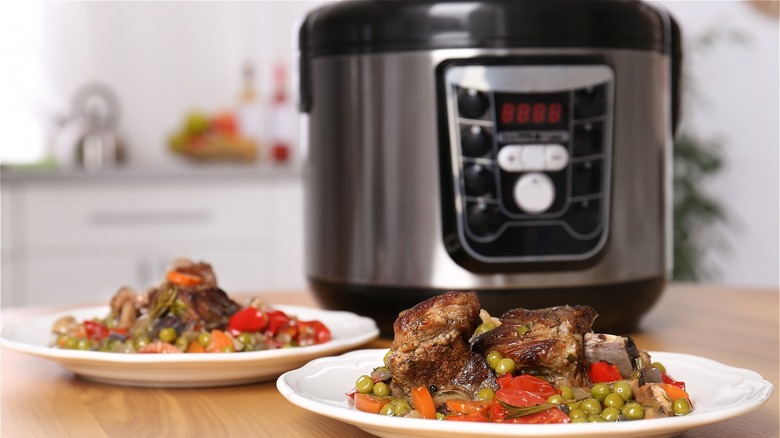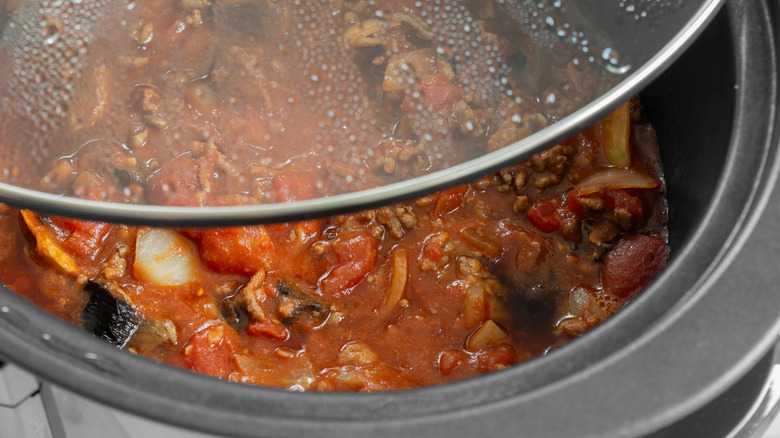Should You Lock The Lid On A Slow Cooker When Cooking?
There's one rule when it comes to slow cooking a family meal that reigns supreme above the rest. It's not about the seasoning, the tenderness of the meat, or even how long it cooks. While those tips are critical to its flavor and texture, it's really about keeping the lid shut tight. Even when the tempting smell of a juicy pot roast fills the house for hours, opening the Crockpot lid lets heat and moisture escape compromising the integrity of the cooking process (per TastingTable). According to Kitchn, slow cookers work by trapping and building heat over time slowly cooking and tenderizing the meat. When you open it, the temperature drops adding more time to an already lengthy cooking process.
Whether you're making flavorful chicken soup or tender pulled pork nachos, keeping your slow cooker's lid shut tight is critical. Whether it's the overwhelming temptation to open it or dedication to the rule itself, locking the lid seems like an obvious solution. However, it's not so straightforward.
Locking the slow cooker lid can be dangerous
Modern versions of slow cookers often come equipped with a lid lock. While fastening the slow cooker cap is child and temptation-proof, it's not the safest choice. In a Southern Living interview with Crockpot spokesperson Imelda, they warn home cooks about the dangers of building too much pressure with a locked lid. Keeping the lid shut has nothing to do with pressure, it's just about maintaining temperature and moisture. Imelda says "locking those latches during cooking might build up pressure and might cause the lid to shatter or even cause the Stoneware to break."
Slow cookers are built to release just enough steam to avoid over-pressurizing, but locking the lid compromises that necessary safety feature. Imelda adds that the Crockpot's lids are designed solely to avoid spillage when carrying your Crockpot outside of the house.
Protect yourself and your slow cooker by keeping its lid unfastened.

